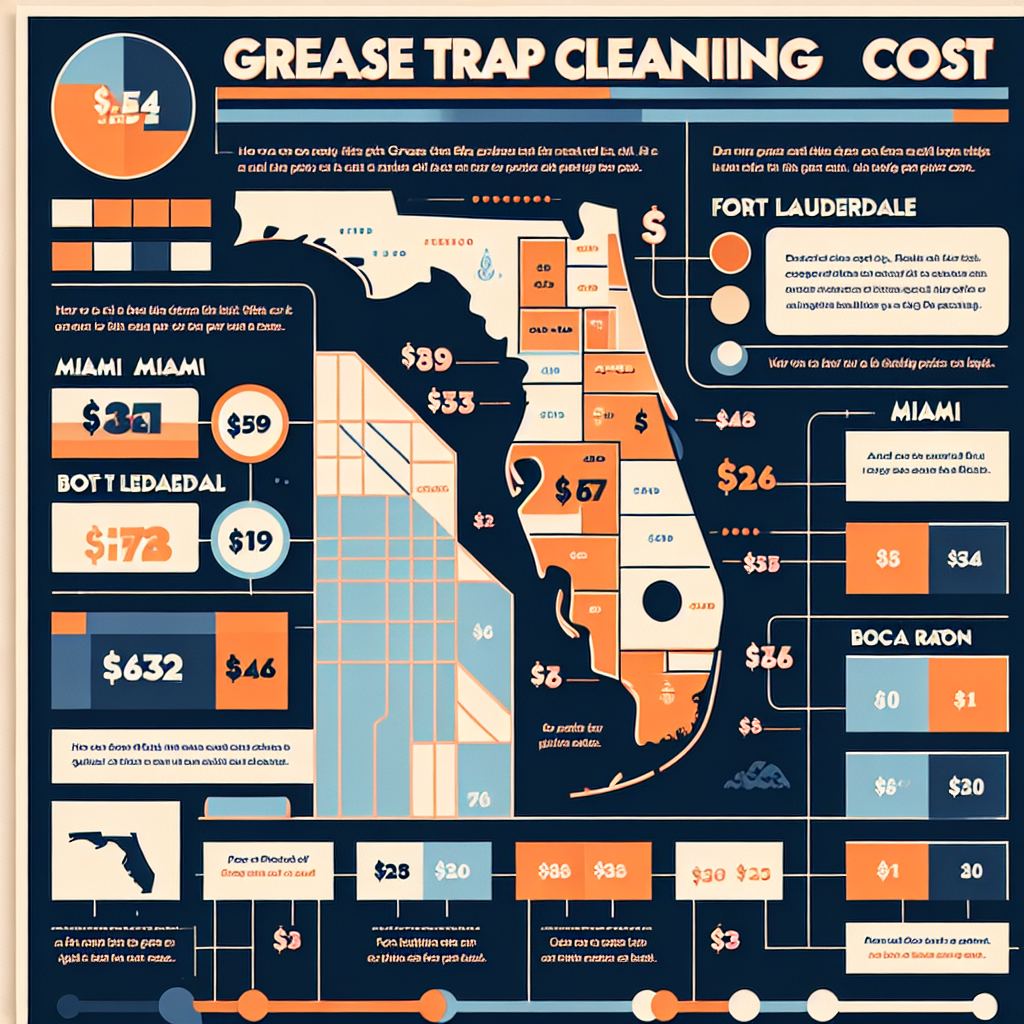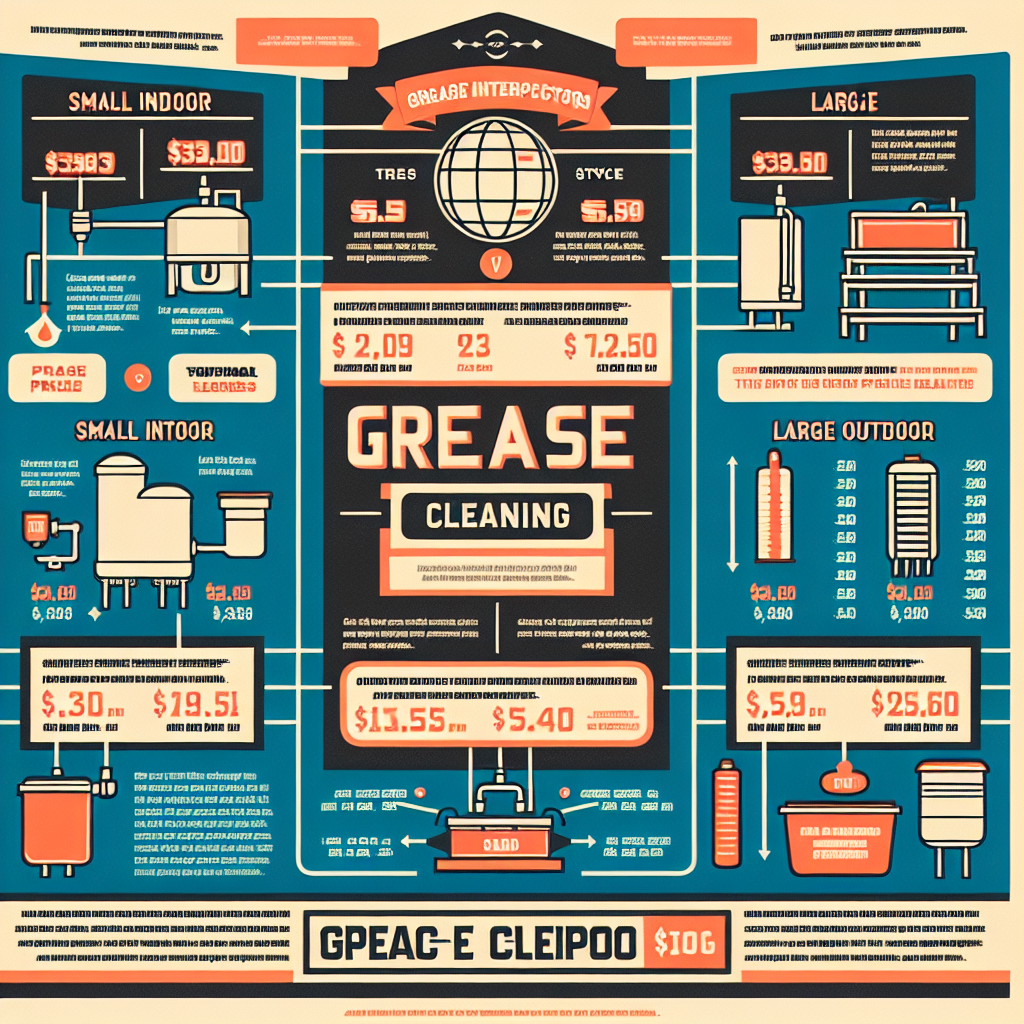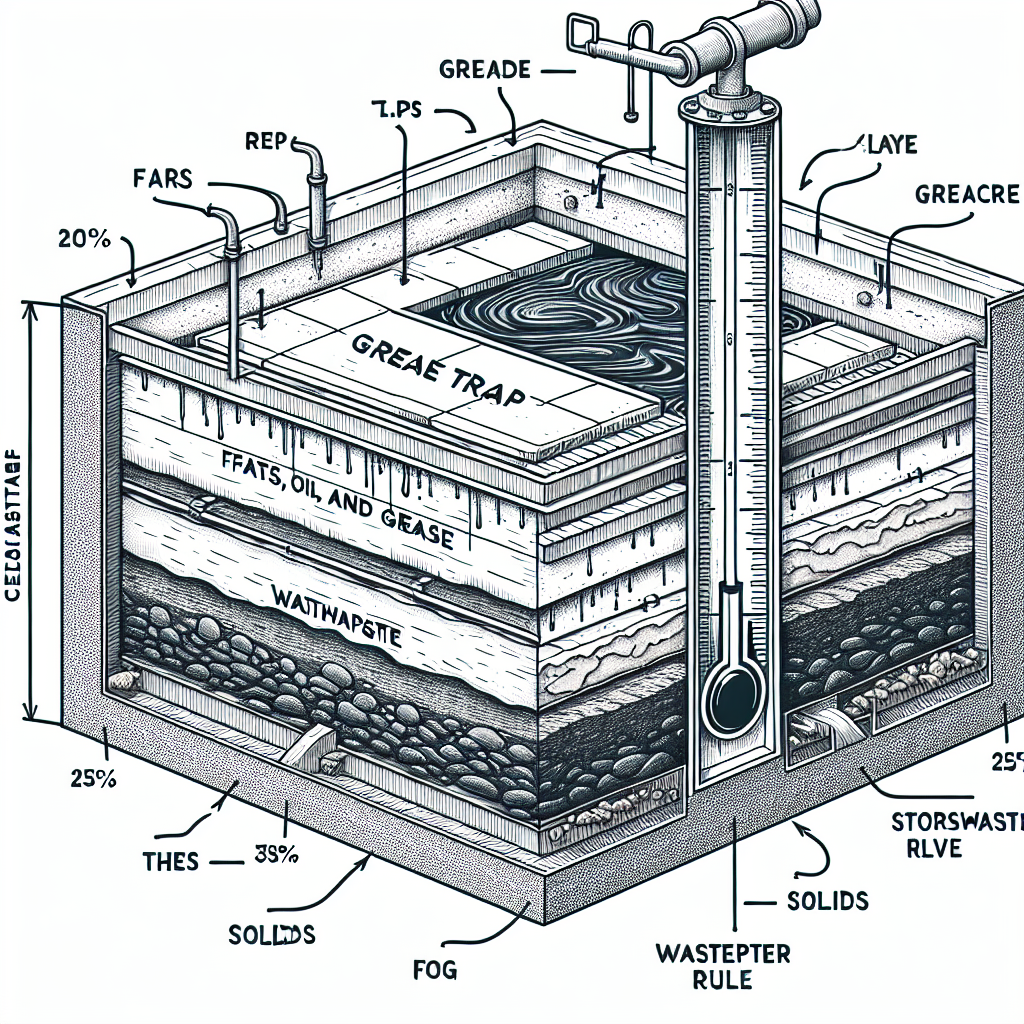South Florida Grease Trap Regulations: County-by-County Guide
Complete guide to south florida grease trap regulations: county-by-county guide for South Florida restaurants.
We Handle Everything For You
We handle all the sourcing, negotiations, and logistics to find you the best grease trap service provider at the cheapest cost in your area.
South Florida Grease Trap Regulations: County-by-County Guide
South Florida Grease Trap Regulations: County-by-County Guide
Introduction
Understanding and adhering to grease trap regulations is crucial for restaurant owners in South Florida. This guide provides a detailed overview of the compliance requirements across Miami-Dade, Broward, and Palm Beach counties, ensuring you stay compliant and avoid hefty fines.
Miami-Dade County Grease Trap Regulations
Who Needs Grease Traps?
In Miami-Dade, all food service establishments are required to install grease traps to prevent fats, oils, and grease (FOG) from entering the wastewater system. This is mandated by local ordinances to protect the environment and public health.
Grease Discharge Operating (GDO) Permits
To operate legally, restaurants must obtain a GDO permit. The application process involves submitting required documentation and adhering to specific guidelines. Permits must be renewed regularly, and any changes in ownership require a permit transfer.
Installation and Maintenance Requirements
Inspections and Penalties
The Department of Environmental Resources Management (DERM) conducts regular inspections. Non-compliance can result in fines up to $5,000 and potential business closure.
Broward County Grease Trap Regulations
Overview of Requirements
Broward County mandates that all food service establishments maintain grease traps to prevent FOG from clogging the sewer system. Compliance is overseen by the Environmental Health Division.
Installation and Sizing
Grease traps must be installed according to specific sizing calculations based on seating capacity and kitchen equipment. Regular inspections ensure compliance with these standards.
Cleaning Frequency and Record Keeping
Staff Training and Compliance Strategies
Training staff on proper FOG disposal and maintenance procedures is crucial. Regular maintenance programs and professional service partnerships can help ensure compliance and avoid penalties.
Palm Beach County Grease Trap Regulations
Local Requirements
Palm Beach County requires grease traps for all food service establishments, with oversight provided by the Water Utilities Department. Compliance with the Pretreatment Program is essential to avoid fines.
Cleaning and Documentation
Penalties and Compliance Best Practices
Non-compliance can lead to significant fines. Establishing regular maintenance schedules and staff education programs can help maintain compliance and avoid disruptions.
Cost Breakdown and Compliance Costs
What You're Paying For
Hidden Costs
Be aware of potential additional fees, such as emergency service premiums and penalties for compliance violations.
How to Get the Best Value
Comparing Service Providers
Research and compare local service providers to find the best value. Consider negotiating service agreements and bundling services for cost savings.
Budgeting for Maintenance
Plan your budget with monthly and annual projections, including an emergency fund for unexpected issues. Regular maintenance can provide a significant return on investment by preventing costly repairs and fines.
FAQs
What are grease trap regulations?
Grease trap regulations are rules set by local authorities to ensure that food service establishments properly manage FOG to prevent sewer blockages and environmental damage.
How often should you clean a grease trap?
Grease traps should be cleaned at least every 90 days, but some may require more frequent cleaning depending on usage and local regulations.
How much does grease trap cleaning cost?
The cost varies based on location, trap size, and service frequency. On average, cleaning can range from $150 to $500 per service.
What are the penalties for non-compliance?
Penalties can include fines up to $5,000, business closure, and additional costs for compliance restoration.
How do I apply for a GDO permit in Miami-Dade?
Applications can be submitted through the DERM online system, requiring specific documentation and adherence to guidelines.
What documentation is required for compliance?
Maintenance records, cleaning logs, and permit documentation must be retained and available for inspection.
Conclusion
Adhering to grease trap regulations in South Florida is essential for maintaining a compliant and efficient restaurant operation. By understanding the specific requirements in Miami-Dade, Broward, and Palm Beach counties, you can avoid costly penalties and ensure the smooth operation of your business.
Call to Action
Ensure your restaurant is compliant with local grease trap regulations. Contact a professional service provider today to schedule a consultation and maintain your compliance.
External Resources
Internal Links
Related Grease Trap Resources



Need Professional Help?
Get expert grease trap services with transparent pricing and same-day availability.
Get Free Quote